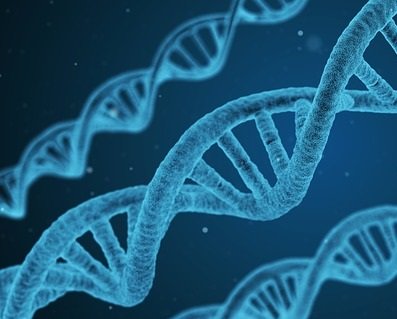
We all know the good old fact — it’s recommended for all adults that they get between 7 and 8 hours of sleep per night.
It’s because we are unable to function well if we sleep for less than 6 hours. Additionally, not getting enough sleep has a significant impact on health, quality of life and life expectancy. It can cause depression, weight gain and even put you at greater risk of stroke and diabetes.
But as it turns out, a small percentage of adults are short sleepers. And not just because they snooze an alarm a bit too early, they actually go to sleep at an average time, and wake up completely naturally. Except that the time they wake up is usually 4-5am.

In 2009, a woman came into Ying-Hui Fu’s lab at the University of California, San Francisco, complaining that she always woke up too early. At first, Fu thought the woman was an extreme morning lark – a person who goes to bed early and wakes early.
However, the woman then explained that she actually went to bed around midnight and woke at 4am feeling completely normal, without any tiredness. It was the same for several members of her family, she added.
Fu and her colleagues compared the genome of different members of that family.
They discovered a tiny mutation in a gene called DEC2 that was present in those who were short-sleepers, but not in other members of the family who had normal length sleep, nor in 250 unrelated volunteers.
When the team bred mice to express this same mutation, the rodents also slept less but performed just as well as regular mice when given physical and cognitive tasks.
Additionally, a paper published in 2014 by a dozen scientists, most of them from Philadelphia, identified a rare genetic variant that make some people’s bodies resist sleep deprivation better. This gene mutation lets people who have it get away with sleeping less than the rest of population.
Researchers in that study compared a 100 pairs of twins.
They found that a twin with the p.Tyr362His variant of the BHLHE41 gene slept at least 1 hour less than his twin brother, who did not have the gene. This "short-sleeping" twin also had fewer mental errors during a 38-hour no-sleeping period. After sleep deprivation he required less recovery sleep than his twin brother.
While it is clear that a few people in our population have this genetic predisposition that lets them sleep less, seven to nine hours of sleep per night is still what most of us need. So, how can you figure out if you're a short sleeper or just short on sleep?
A true short sleeper can function completely normally during the day on less than six hours of sleep, and without any drugs.
That means that loading up on caffeine or binge sleeping on the weekend are clear signs that you’re not getting enough sleep. One of these short-sleeping people is Abby Ross, a retired psychologist from Miami, Florida.
This "short-sleeper" says that she only needs about 4 hours of sleep per night, so that lets her have a ton of spare time to fill while the rest of the population is in their dream worlds.
“It’s wonderful to have so many hours in my day – I feel like I can live two lives,” - Abby Ross
Short-sleepers like Ross never feel lethargic, nor do they ever sleep in. They wake up very early – normally around 4-5 a.m. – ready to start with their day.
Margaret Thatcher may have even been one of these rare people – she famously said she needed just four hours a night, whereas Mariah Carey claims she needs 15. Whether you lean more towards Thatcher or Mariah Carey, you still dream. All humans do.
But have you ever heard of LUCID dreaming?
It's when you can actually control yourself in a dream. How cool is that?
We have developed a supplement that helps you achieve those kinds of dreams! Imagine yourself flying in one moment, landing on the terrace of your beautiful mansion, and then having sex with your celebrity idol?
If this sounds like something you're interested in, consider giving LucidEsc a look. Just click here!
Link to article: https://vividream.com/short-sleep-gene-why-sleep-4-hours-dreaming/